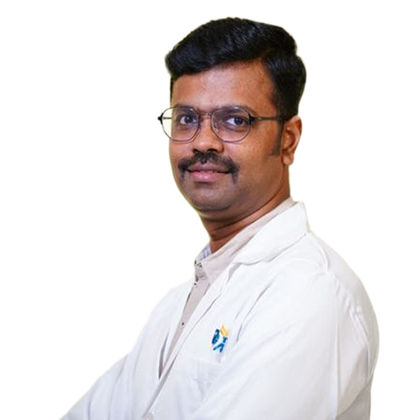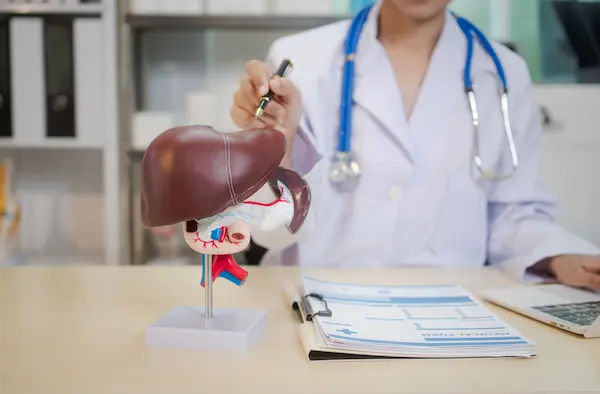How To Transplant Liver?
Learn how to transplant a liver with this step-by-step overview of the liver transplant procedure. Understand the preparation, surgical process, and recovery for successful liver transplantation.

Written by Dr.Sonia Bhatt
Last updated on 3rd Jul, 2025

Introduction
Liver transplantation is a complex but life-saving procedure for people with severe liver disease or failure. If you or a loved one is considering this treatment, it’s natural to have questions. This article will guide you through the process in simple terms, helping you understand what to expect.
What Is a Liver Transplant?
A liver transplant is a surgical procedure where a damaged or diseased liver is replaced with a healthy one from a donor. The new liver can come from:
A deceased donor (someone who has recently passed away and donated their organs).
A living donor (a healthy person, often a family member, who donates a portion of their liver).
The liver is unique because it can regenerate—meaning both the donor and recipient’s livers can grow back to normal size over time.
Who Needs a Liver Transplant?
A transplant is usually recommended when the liver is so damaged that it can no longer function properly. Common conditions leading to liver failure include:
Cirrhosis (scarring due to long-term liver damage from alcohol, hepatitis, or fatty liver disease).
Acute Liver Failure (sudden loss of liver function due to infections, toxins, or medications).
Liver Cancer (in some cases, if the tumour is confined to the liver).
Genetic Disorders (such as Wilson’s disease or hemochromatosis).
The Liver Transplant Process
Here is the step-by-step guide of liver transplant process:
1. Evaluation & Waiting List
Before a transplant, doctors assess if you’re a suitable candidate. Tests include:
Blood tests, imaging scans, and heart/lung function checks.
Psychological and financial counselling.
If approved, you’ll be placed on a waiting list (for deceased donor transplants). Priority is given based on illness severity.
2. Finding a Donor
Deceased Donor: You wait until a matching liver is available.
Living Donor: A family member or friend with a compatible blood type and good health can donate part of their liver.
3. The Surgery
The transplant surgery takes 6 to 12 hours. The diseased liver is removed, and the new liver (or portion) is connected to blood vessels and bile ducts.
4. Recovery & Aftercare
Hospital stay: 1–3 weeks.
Medications (immunosuppressants) are needed to prevent rejection.
Regular follow-ups to monitor liver function.
Consult Top Specialists for Personalised Tips
Life After a Liver Transplant
With proper care, most people live healthy lives post-transplant. Key steps include:
Taking prescribed medications (to prevent rejection and infections).
Eating a balanced diet (low in salt, sugar, and processed foods).
Avoiding alcohol and smoking.
Regular exercise (as advised by the doctor).
Monitoring for complications (infections, rejection, or side effects of medications).
Risks & Challenges
Like any major surgery, liver transplants have risks:
Rejection (body may attack the new liver; medications help prevent this).
Infections (due to weakened immunity from anti-rejection drugs).
Bleeding or blood clots.
Side effects of long-term medications.
However, advances in medical science have significantly improved success rates.
How Can You Prepare?
If you or a loved one is considering a transplant:
Follow your doctor’s advice to stay as healthy as possible.
Maintain a support system. Family and friends play a crucial role.
Stay informed. Ask your medical team any questions you have.
When to Seek Help?
If you experience:
Jaundice (yellow skin/eyes).
Severe fatigue or confusion.
Swelling in the abdomen or legs.
Fever or signs of infection.
Consult a doctor immediately.
Conclusion
A liver transplant can be a second chance at life for those with liver failure. While the process may seem overwhelming, advancements in medicine have made it safer and more successful than ever. If you think you might need a transplant, speak with a specialist to explore your options.
Consult Top Hepatologist
Consult Top Specialists for Personalised Tips

Dr. Srinivasa Reddy
Hepatologist
12 Years • MBBS, MD (General Medicine), DM (Hepatology),ASGE
Hyderabad
Myra Liver & Gastro Care, Hyderabad

Dr. E Prabhakar Sastry
General Physician/ Internal Medicine Specialist
40 Years • MD(Internal Medicine)
Manikonda Jagir
Apollo Clinic, Manikonda, Manikonda Jagir
(125+ Patients)

Dr. Aswin S. Krishna
Hepatologist
10 Years • MBBS, MD (Internal Medicine,MMC), DM (Hepatology, MMC), PDF(Fellowship in Liver Transplanatation)
Chennai
Apollo Hospitals Greams Road, Chennai
(100+ Patients)

Dr. Kumaragurubaran. S
Hepatologist
0 Years • MBBS.,MD.,FPIC.,DM.,
Tiruchirappalli
Apollo Speciality Hospitals Old Palpannai, Tiruchirappalli
(25+ Patients)

Dr U V U Vamsidhar Reddy
Hepatologist
10 Years • MBBS, MD (JIPMER), DM (Hepatology, PGIMER)
Chennai
Apollo Hospitals Greams Road, Chennai
(100+ Patients)
Consult Top Hepatologist

Dr. Srinivasa Reddy
Hepatologist
12 Years • MBBS, MD (General Medicine), DM (Hepatology),ASGE
Hyderabad
Myra Liver & Gastro Care, Hyderabad

Dr. E Prabhakar Sastry
General Physician/ Internal Medicine Specialist
40 Years • MD(Internal Medicine)
Manikonda Jagir
Apollo Clinic, Manikonda, Manikonda Jagir
(125+ Patients)

Dr. Aswin S. Krishna
Hepatologist
10 Years • MBBS, MD (Internal Medicine,MMC), DM (Hepatology, MMC), PDF(Fellowship in Liver Transplanatation)
Chennai
Apollo Hospitals Greams Road, Chennai
(100+ Patients)

Dr. Kumaragurubaran. S
Hepatologist
0 Years • MBBS.,MD.,FPIC.,DM.,
Tiruchirappalli
Apollo Speciality Hospitals Old Palpannai, Tiruchirappalli
(25+ Patients)

Dr U V U Vamsidhar Reddy
Hepatologist
10 Years • MBBS, MD (JIPMER), DM (Hepatology, PGIMER)
Chennai
Apollo Hospitals Greams Road, Chennai
(100+ Patients)

